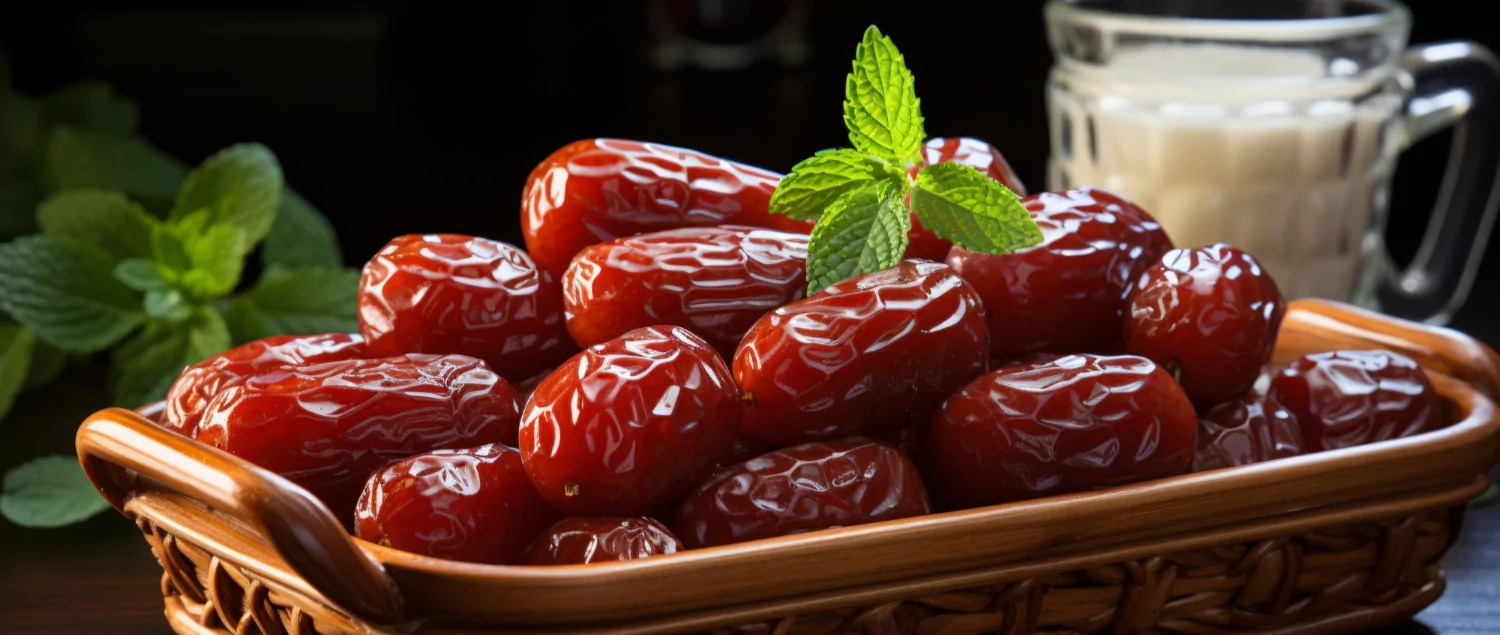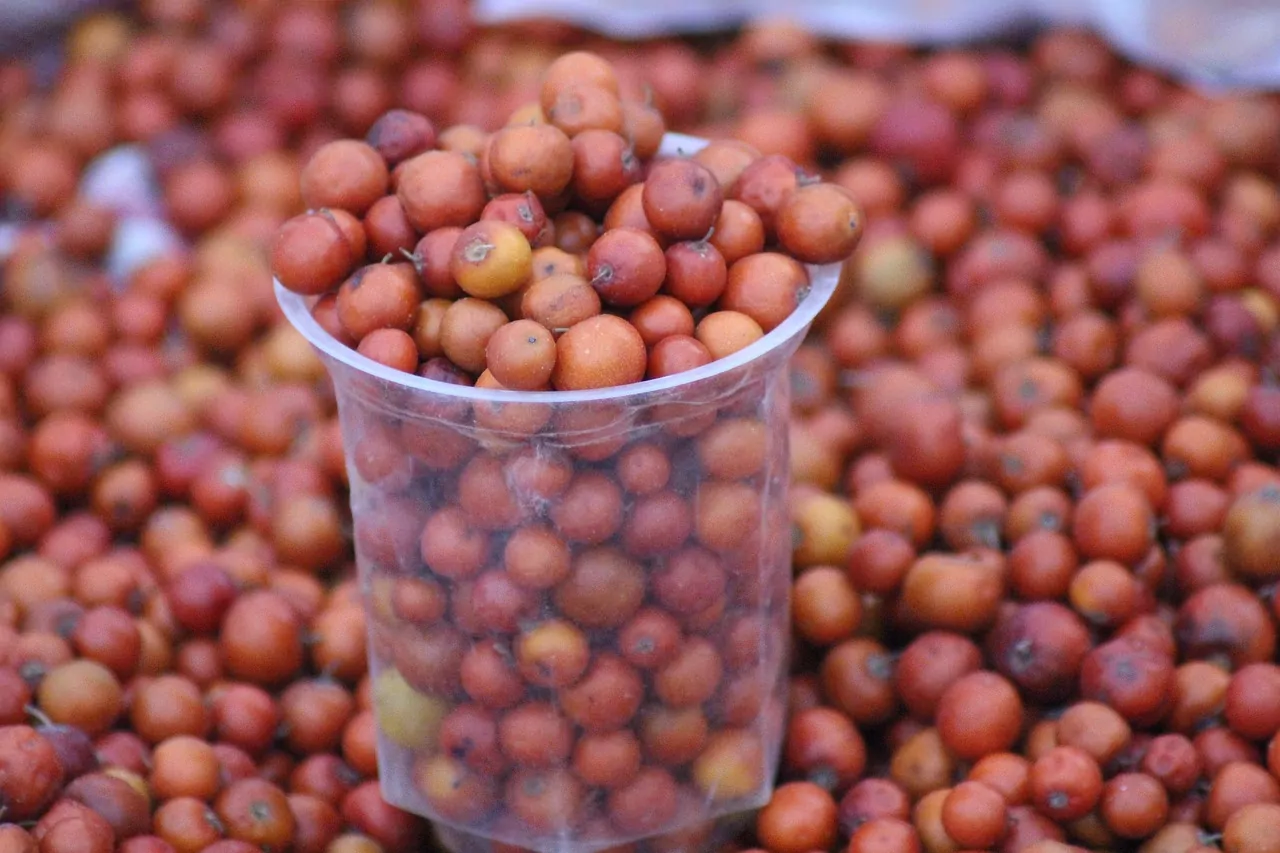What is Jujube?
Jujube is also called Chinese date. Jujube is a thorny tree with yellow flowers that blooms in spring, especially in China, Southern Europe, India, Anatolia and the Middle East. Many plant parts such as fruits, bark and leaves are used for medicinal purposes. It is suitable for the treatment of various diseases with its anti-inflammatory, anti-cancer and germicidal effects. Fresh jujube can be consumed directly for its benefits or it can be consumed in different forms such as jam, molasses, dried fruit. Fruits contain high amounts of vitamins A, C and B. It is also rich in phenolic compounds, triterpenes and flavonoids. It is useful in the treatment of various diseases such as diabetes, obesity, skin infections, digestive system diseases.What are the Benefits of Jujube?
Jujube fruit can be used by people with sleep and anxiety complaints by showing a calming, stress-reducing effect. By stimulating pancreatic cells, it increases insulin production and helps lower blood sugar. Jujube fruit benefits include effects such as antifungal activity, treatment of fungal infections in the body. Thanks to its antibacterial properties, it is effective for the elimination of skin infections and rapid healing of wounds and lesions by protecting them from infection. Thanks to its antioxidant properties, it regenerates cells and prevents cells from being damaged by free radicals. Jujube plant parts can be used under the supervision of a doctor in the treatment of cancer patients with immune-boosting and anticancer properties. Thanks to its benefits on the circulatory system, it has a protective effect against heart diseases. It improves the functioning of the liver, helps to lower cholesterol, reduce fatty liver disease. When jujube is drunk as tea, it reduces mucus secretions. It helps to reduce the effects of respiratory diseases such as flu and colds. Jujube fruit accelerates the emptying of the intestines with its fibrous structure and relieves constipation complaints. It should not be forgotten that jujube fruit can have harms as well as benefits and should be used carefully.What is Jujube Good for?
Jujube plant can be used in many areas from sleep problems to cancer treatment. The complaints that jujube plant is good for can be listed as follows:- Psychological distress such as insomnia, stress and anxiety
- Digestive problems such as abdominal pain, gas pains, constipation
- Weakness, fatigue
- Flu, colds and viral infections
- Skin irritations and skin infections
- High blood pressure and circulatory problems
- High blood sugar
How to Eat Jujube?
Jujube has green fruits that look like large olives. When ripe, these fruits turn dark red or brown and begin to wrinkle. These fruits can be consumed directly or the plant parts can be eaten in different ways. The parts of the jujube plant can be consumed as follows:- The fruits are sweet and fragrant. It can be added to desserts, cakes and cookies.
- Jujube fruits can be used to make jujube jam and marmalade.
- Jujube molasses can be consumed daily like other molasses.
- Jujube vinegar can be included in the daily diet. It can be added to salads, pickles and preserves.
- Jujube fruits can be dried and consumed directly like nuts or brewed like tea.
- The leaves and roots of the jujube plant can also be brewed as tea.
Which disease is jujube fruit good for?
People who like to consume jujube may ask questions such as“what is jujube good for?”. Jujube fruits can be used under the supervision of a doctor to help treat many diseases such as diabetes, cardiovascular diseases or added to the daily diet to help improve overall health. The diseases that jujube fruit is good for are as follows:Respiratory Diseases
Diseases affecting the respiratory tract often make breathing difficult and cause abnormal mucus secretion. When jujube plant is consumed as tea, it reduces mucus production, relieves breathing by reducing congestion in the respiratory tract. Reduces coughing.
Digestive System Disorders
Jujube fruits consumed with the peel have a laxative effect, that is, they increase intestinal activity. It can be preferred to relieve constipation, abdominal pain and gas complaints.Cardiovascular Diseases
Jujube has a protective effect on the heart. It eases the burden on the heart by lowering blood pressure. Heart disease can become more dangerous with high cholesterol. High cholesterol levels can also lead to blood vessel blockages. Jujube consumption protects the liver and lowers cholesterol.Mental Health Problems
Jujube has a protective effect on the brain. Relieves complaints of stress and anxiety disorders. It reduces the symptoms of depression.Cancer Treatment
In studies conducted with ursolic acid extracted from jujube fruits, a proliferation and growth-reducing effect on cancer cells has been observed. It activates the self-killing mechanism of cancer cells and increases body immunity.Obesity Treatment
Obesity is often associated with diabetes. Jujube fruit prevents blood sugar from rising and increases insulin production. It reduces weight-related fat in the body organs and makes the organs work healthier. Jujube fruits can be preferred for constipation complaints during the diet, as they raise sugar more slowly and increase intestinal activity. Jujube plant is also used for the relief of pain and inflammation. Jujube increases the body’s immunity against diseases. The oil obtained from the jujube plant helps to strengthen hair follicles and the formation of new hair cells.Frequently Asked Questions
Read on to find out frequently asked questions and answers.
What are the Harms of Jujube?
Natural products, like medicines, can cause some side effects when used in large quantities. Jujube should be consumed by evaluating its benefits and harms . Side effects that may occur due to the use of jujube plant can be listed as follows:
- In people with chronic diseases and taking medication, jujube may interact with drugs and cause unwanted effects. It would be appropriate for these people to consult their doctor before using jujube.
- People with a sensitive stomach may experience unwanted effects such as nausea, vomiting and abdominal pain when consumed in large quantities. When such side effects occur, the use of the product should be discontinued. If the effects do not decrease or continue to increase, the nearest health institution should be consulted.
- When jujube is consumed too much, it can lead to very low blood pressure and sudden fluctuations in blood sugar.
- In people with allergic constitution, complaints such as itching and redness may occur after consumption.
Where does jujube grow?
The jujube plant is cultivated in many places, mainly in Southern Europe, the Middle East, India and North Africa. It is widespread over a large area in the western part of Madagascar. It grows as a wild species in the Caribbean, Jamaica and the Bahamas. In Turkey, it is observed more intensively in the Marmara region and in the southern and southern parts of Anatolia. It is produced in a limited area in the Çoruh Valley in the Black Sea, in Demirci in Manisa and in Çivril in Denizli. There are 6 different species of jujube growing in Turkey.
Jujube is a plant that grows in temperate climates and can adapt to cold weather. It grows in humus-rich, permeable soil at altitudes of 1500-200 meters above sea level. It is resistant to extreme rainfall and drought.
What are the Benefits of Jujube Dried?
Jujube can be consumed as dried nuts or brewed as tea. Dried jujube can also be used to add flavor to desserts. It is sweeter and more sugary than the fruit. In smaller quantities, it has a higher vitamin and mineral content than fresh. It should be consumed more carefully by diabetics.
When jujube dried jujube is consumed regularly, it lowers blood pressure and has a protective effect on the heart. Reduces stress problems by alleviating symptoms of depression. It helps to lower blood sugar in diabetic patients. It helps to relieve stomach and intestinal complaints and relieves constipation. Thanks to its high vitamin and mineral content, it has a good effect on general health. It relieves the symptoms of viral diseases such as sore throat, cough and strengthens immunity. It has a protective effect against cancer. It protects the liver and helps lower high cholesterol.
How should jujube be dried?
While jujube can be eaten fresh when in season, it can be consumed all year round in its dried form. At this point, the question “how to dry jujube?” may come to mind. Jujube fruits can easily be dried at home. For longer storage, it needs to be thoroughly dried under the right conditions. Fruit that is not dried or stored properly can mold over time.
In order to dry jujube fruits, they must first be peeled. To do this, boil water in a pot and dip the fruits in the boiling water. Then, it is dipped into the bowl full of ice and removed to peel the peels more easily. After the fruits are completely peeled, place them on a baking tray with greaseproof paper or a similar cover and place the fruits spaced apart. Heat until dry with a cooker such as an oven or microwave. If you want to use a different option, you can place a thin towel on the tray and dry it on a radiator or in the sun. Thoroughly dried jujubes can be stored in the freezer or in glass containers in the kitchen cabinet. Jujube can be consumed as desired for its dried benefits.
How Many Jujube Fruits Should Be Eaten Per Day?
The amount of jujube fruits consumed varies according to variables such as age and diseases. Although it is a healthy and beneficial fruit, all foods consumed in excess can be harmful. People with blood pressure and heart disease should be careful when consuming jujube and should not overdo it. Jujube is a plant that can also be harmful. People whose blood sugar drops and rises too much should also decide according to their general condition when consuming jujube fruit. A healthy person without any disease can consume 2-4 pieces of jujube in average size per day. If any discomfort is felt during the consumption of the fruit, use should be discontinued. If symptoms do not improve and worsen, you should contact the nearest health facility as soon as possible.





